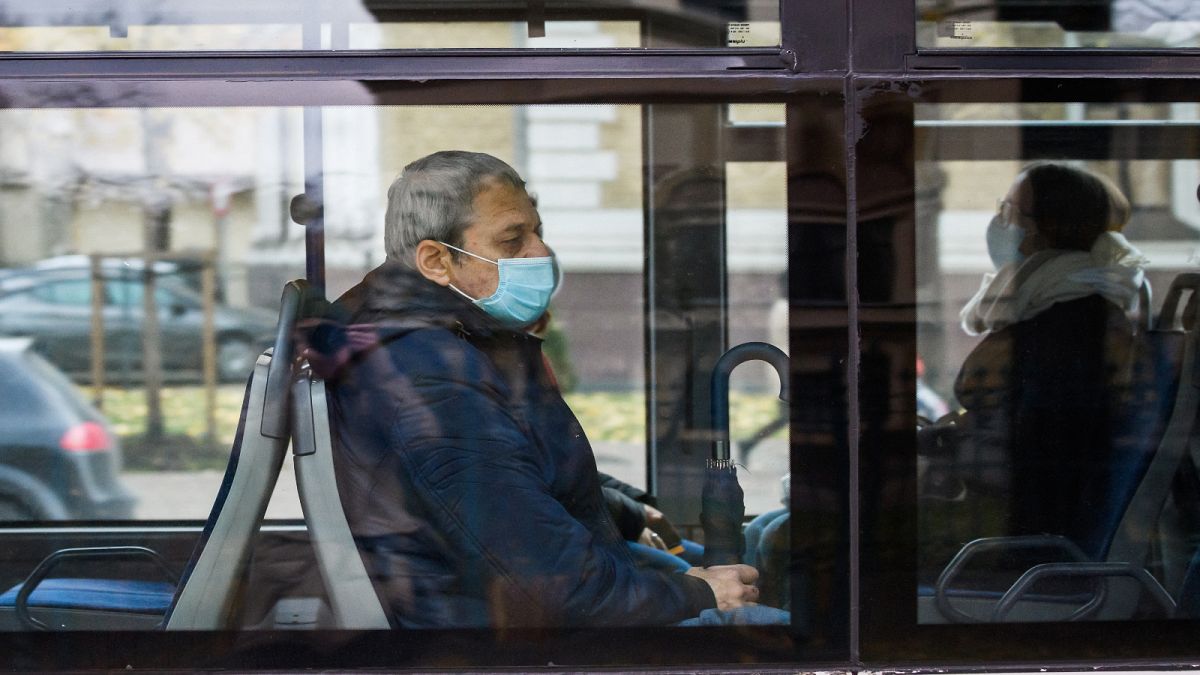A new study analysed the prevalence of long COVID in the population and found fewer cases of lasting symptoms associated with more recent strains.
New variants of COVID-19 are less likely to cause persistent symptoms months later, according to a new pre-print study.
Researchers at the University of Melbourne in Australia analysed data from confirmed COVID-19 infections between January 2020 and October 2022 and interviewed more than 12,000 people for the study.
The authors found that persistent symptoms after COVID-19 - also known as long COVID - were common, with nearly 40 per cent of people with COVID-19 infections reporting at least one persistent new symptom compared with 20 per cent of the control group.
Around 14 per cent of study participants who had a previous COVID-19 infection reported at least one persistent symptom of COVID-19 that continued to cause problems three months on.
One in five of the people with long COVID experienced impairment at 12 months, but as the pandemic progressed, COVID-19 became less likely to cause persistent symptoms.
The researchers found that people infected with the newest strain of COVID-19, Omicron, which was first detected two years ago, were less likely to have long COVID.
Around 25 per cent of people infected with the original COVID-19 strain developed long COVID and had moderate problems with their usual activities after three months. That compared to around 22 per cent of people with the Delta strain who developed long COVID.
However, just 12 per cent of people infected with Omicron reported long COVID, the researchers found.
“We cannot exclude the possibility that the difference in vaccination between the ancestral and Delta groups, but is unlikely to explain the subsequent decrease in long COVID in later strains as the rates of immunisation do not increase a great deal,” Alex Holmes, an associate professor in psychiatry at the University of Melbourne and study author, told Euronews Next.
The researchers also determined that people at greater risk for long COVID include women, people between the ages of 40 and 49 and those with previous chronic illness, past anxiety and depression or who had severe COVID-19.
Holmes added that studying long COVID could “open up opportunities” for more research into “immunological and autoimmune mechanisms that may have wider benefits in terms of other conditions”.
Long COVID widespread
Previous studies have found that persistent symptoms after a COVID-19 infection are widespread.
An estimated 36 million people living in Europe and some parts of central Asia may have experienced long COVID in the three years since the beginning of the pandemic, according to estimates from the Institute for Health Metrics and Evaluation.
Meanwhile, a survey of a quarter of a million people in the UK found that tens of thousands of people in England may have lasting COVID-19 symptoms more than a year after infection.
The most common symptoms include fatigue, difficulty thinking and concentrating, and joint pains, the analysis found.
Previous studies have also found that the risk of developing long COVID was lower with the latest strain of the virus Omicron than with the previous strain Delta.
An analysis from researchers at King’s College London compared 56,000 adults who tested positive for COVID-19 infection between December 2021 and March 2022 compared to around 41,000 who tested positive between June 2021 and November 2021.
They found that just 4.5 per cent reported they had experienced long COVID during the Omicron period compared to 10.8 per cent during the Delta period.
“The Omicron variant appears substantially less likely to cause Long-COVID than previous variants but still 1 in 23 people who catch COVID-19 go on to have symptoms for more than four weeks,” lead author Claire Steves from King’s College London, said in a statement last year.
She added that “given the numbers of people affected”, they should continue to be supported at work, at home and in the health system.



